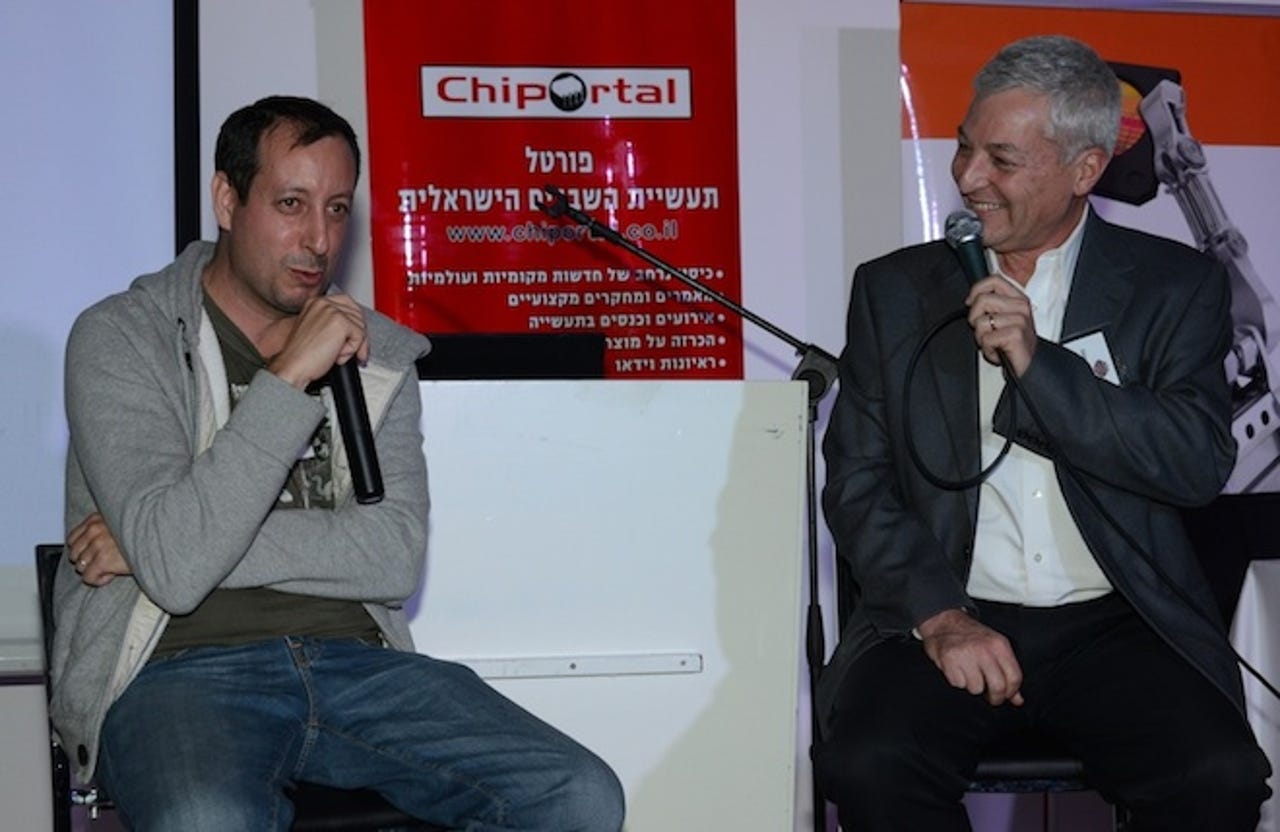'At Apple, 'they' really are after you': One insider's view of life in Cupertino

All high-tech companies profess their belief in noble ideals like worker advancement, teamwork, and 'transparency' - but on the ground, there can be major differences in culture. Take, for example, the differences between Intel and Apple, according to Ariel Maislos, former CEO of Israel's Anobit: "They say that Intel is full of paranoids, but at Apple, 'they' really are after you."
Maislos is in a unique position to know about what goes on inside Apple: he worked for the company for about a year, after Apple acquired Anobit in December 2011 for a reported $390m. Last month, Maislos left Apple for what were said to be personal reasons - although the rumour is that he is planning a new start-up.

While he would never have discussed the company when he was still working there, Maislos is no longer an Apple employee, meaning that he is free to discuss the life at Apple, if not the technology he and the Anobit team were working on after the acquisition. Maislos shared some of his experiences with a rapt Tel Aviv audience recently at an event sponsored by the Israel Semiconductor Club.
A series of start-ups
Maislos is a serial entrepreneur – Anobit, a fabless designer of flash memory controllers, was his fourth start-up (his second one, Passavé, which he established with some army buddies when they were all in their early 20s, was sold in 2006 to PMC-Sierra for about $300m). In between Passavé and Anobit, Maislos ran a web advertising technology company called Pudding, "but we essentially started Anobit right after we finished with Passavé," he said. "We had several ideas about how to improve some major issues in flash technology that interested us from our time at Passavé."
Among those improvements, based on the company's patent portfolio, is a technology that claims to extend the lifespan of MLC NAND used in many consumer devices. "It took me and Ofir [Shalvi, one of Anobit's co-founders with Maislos and Ehud Weinstein] a year and a half to figure out the solutions," Maislos said.
So how did the deal with Apple come about? "We weren't looking for a particular landmark or exit," Maislos said of the three Anobit founders. "We're all serial entrepreneurs who have already participated in several exits, so we had enough money to fund the company ourselves, without the need to sell out. We went full speed ahead into our work, without looking back."
But Apple, it turned out, was very interested in Anobit. "We had already had a close working relationship with Apple," Maislos revealed. "When you are working in the flash memory industry, it's kind of hard not to come across Apple at some point, as a partner or a customer – and they were a very big customer. We developed a very good relationship with them, and a mutual appreciation developed between both companies."
Everything you do has to be amazing
In 2010, Intel invested $32m in one of Anobit's financing rounds – nearly half the money Anobit had raised to that point – so Maislos was quite familiar with the Intel culture, too. While Intel engineers are given assignments and are rewarded for ingenuity and creativity, he said, it's a given at Apple that engineers will be at the top of their game. "At Apple, you have to run ahead just to stay in place, and there are very high expectations of everyone. Apple expects everything you do to be amazing.
"At Apple, you have to run ahead just to stay in place, and there are very high expectations of everyone" — Ariel Maislos
"That is not the case at Intel, where no one expects you to be 'amazing'," said Maislos, although Intel does reward those who give their "A+ game".
Maislos believes that the reason for the exceptional pressure is the result of Apple's "near death experience" in the late 1990s. On the eve of Steve Jobs' return to the company as CEO in 1997, Apple was said to be barely three months from bankruptcy – and that experience still deeply affects the way Apple does business. "Intel, too, has had crises that it recovered from," said Maislos – and those recoveries have given Intel officials the confidence to believe in the company's continued survival.
At Apple, on the other hand, "no one can imagine a future in which the company fails", and to make sure that that eventuality never comes about, the corporate culture demands much greater levels of personal excellence than at Intel, or any other tech company, for that matter. It's those standards, Maislos believes, that has put the company where it is today. "Apple has had several important defining moments since that crisis," he said. "It's a company that is extremely focused on its goals. Working there was an amazing experience."